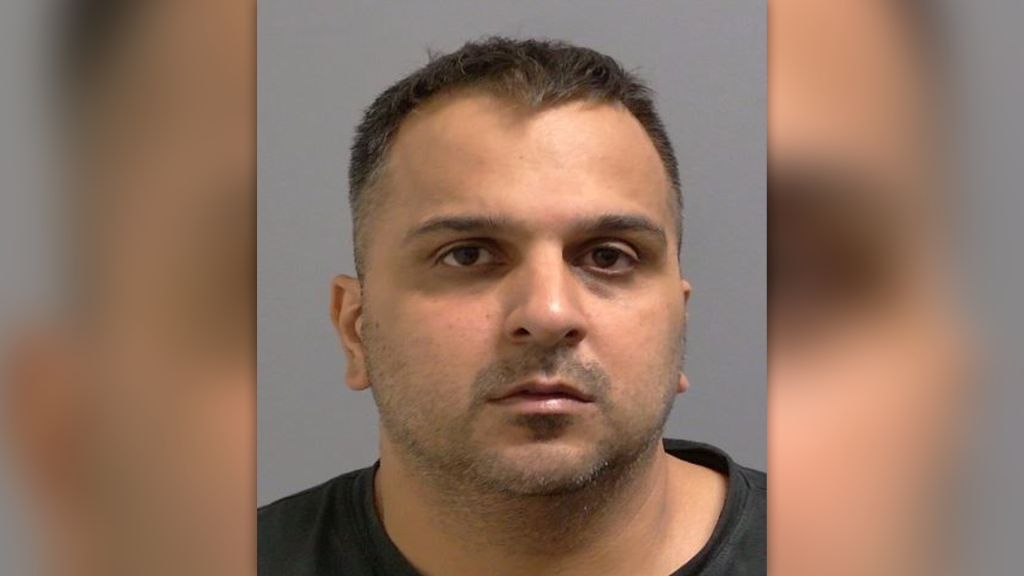Ontario pledges additional $202M for human trafficking strategy
Posted March 6, 2020 6:03 pm.
Last Updated March 6, 2020 6:31 pm.
Ontario says it will spend $202 million more over the next five years to fight human trafficking in the province.
Premier Doug Ford says the money will fund a variety of measures, including an expansion of the provincial police force’s child exploitation unit and a public education campaign.
He says part of the money will also be dedicated to victims’ services, including supportive housing for human trafficking survivors.
The Progressive Conservative government says about two-thirds of Canada’s police-reported human trafficking violations take place in Ontario.
Ford says human traffickers make an estimated $50 million annually by targeting children, adding the average age of recruitment for victims is 13.
Describing the practice as “modern-day slavery,” he said the additional funding is necessary to protect families.
“It’s a tremendous amount, but as far as I’m concerned it can never be enough,” Ford said of the new funding during a news conference in St. Catharines on Friday. “No child should ever live in fear of violence or exploitation.”
The Tories promised to develop a strategy to address the issue last November, and the new funding comes in addition to $105 million the province is already spending to combat human trafficking over the next five years.
Ford said the strategy will also involve looking at legislative tools for prosecuting such cases.
He said he intends to raise the need for tougher penalties and stricter bail conditions with Prime Minister Justin Trudeau at a meeting next week.
Earlier this week, the government cancelled, then recommitted funding to Ontario’s 42 rape crisis centers. In a joint email statement from the NDP’s Jill Andrew and Suze Morrison, the party criticized the province for not doing enough to fund these centers.
“Rape crisis centres — and those who rely on their services — deserve assurance that they will get the funding required to keep up with the surge in survivors seeking support in the aftermath of #MeToo,” the email said. “It was wrong for the Ford government to put them through angst by saying $1 million in funding wouldn’t continue, and then causing even more uncertainty by providing few details and no clarity on what funding may be forthcoming.”
The Canadian Center to End Human Trafficking launched their hotline in May 2019, and since then have been averaging 250 calls a month. The organization says they are cautiously optimistic about today’s announcement.
“It looks like they have done well-rounded consultations with key stake-holders,” said Ashley Franssen-Tingley. “It’s sort of a wait and see, this looks good on the surface. We know that the way these things seem to role out, there’s quite the bureaucratic process, so we’re hopeful once those services start to go into the front line, we’ll see an impact.”
The Center says the GTA is a hot spot for these crimes. In 2013, Toronto Police responded to 67 occurrences, while in 2018, that number increased four times.
Franssen-Tingley says human trafficking exists because it’s a really high profit low risk crime, that happens in communities across the country. Though she’s optimistic that the leaders in Canada are addressing the issue, there are still gaps that exist, including access to emergency transition and long-term support and services, which are both vital for those “exiting a traffic situation.”
“In the last 10 years, we’ve seen a lot of movement and recognition from governments that this is a significant issue,” Franssen-Tingley said. “What we would love to see are comprehensive strategies across every province and territory in this country.”
Franssen-Tingley says they wish the government would make a more significant investment for those who are experiencing labour trafficking, calling it a hidden crime that’s on the rise.
“People aren’t coming forward to police, so we believe the numbers are greater than that,” she said. “Through the Canadian Human Trafficking Hotline, we are looking to gather some of that primary data to build a picture of what the looks like.”
The Canadian Human Trafficking Hotline is available 24/7 to anyone in country, at 1-833-900-1010. Anyone calling, will be connected to services and support, in up to 200 different languages.










